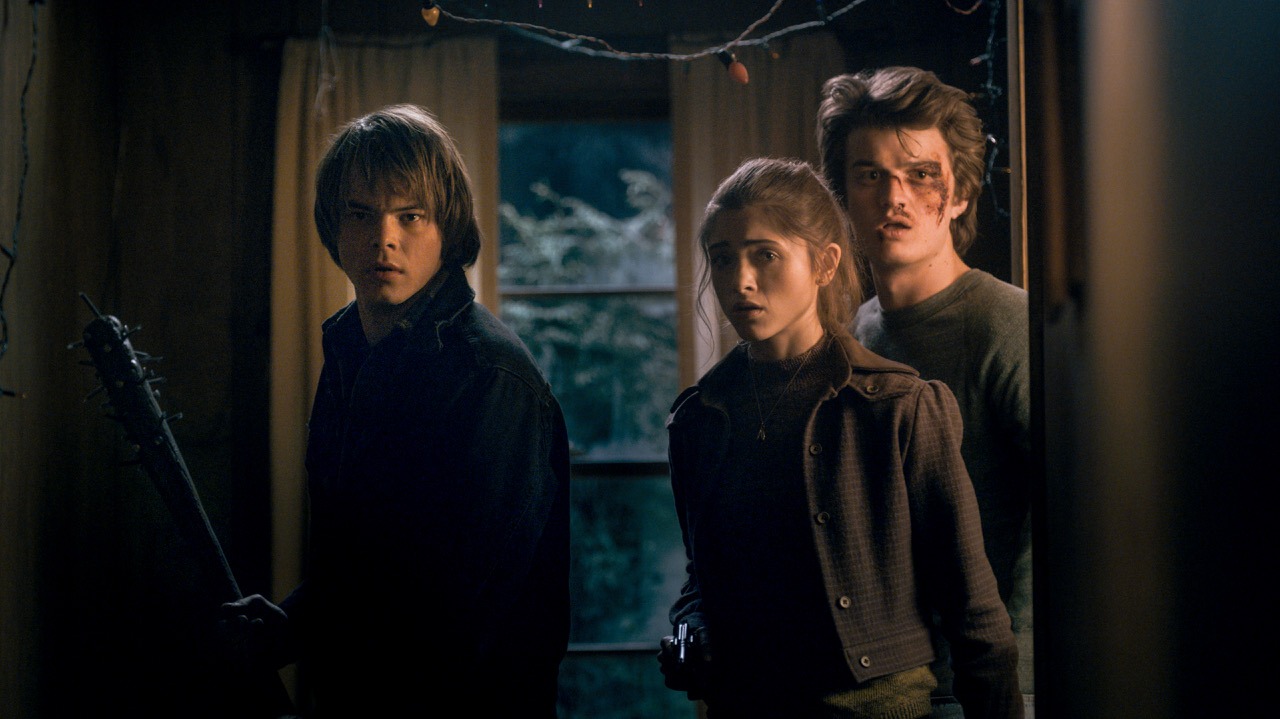Tired tropes: finding the right balance
There are times when you can predict exactly how a television episode will pan out and end up being exactly right. Whether it’s inconvenient misunderstandings, or a new love interest being introduced to milk the main couple’s ‘will-they-won’t-they?’ tension, there is a point where tropes stop feeling organic and start feeling tired. Overused tropes are grating when they’re not employed well, but executed correctly, they become classic rather than clichéd.
Futile love triangles
When the main couple is established, introducing characters as love interests feels unnecessary. It’s even more overdone when the love interest only exists if the relationship does. This is especially common in sitcoms and comedy-dramas, where recurring characters will fade into obscurity as soon as their run with a major character has ceased. Emily in Paris is a recent example of this, with Emily’s (Lily Collins) character introduced to new love interests in almost every episode. However, these characters are swiftly written out, as the main couple, Emily and Gabrielle (Lucas Bravo), becomes obvious.
This is not to say that love triangles are always flawed. I do believe they can be executed well, so long as they don’t feel too predictable, and there are bonus points if the rejected love interest forms a compelling arc as an individual character. A popular example of this is Stranger Things, where Steve (Joe Keery) is initially explored only as far as being Nancy’s (Natalia Dyer) love interest. However, seeing her prefer Jonathan’s (Charlie Heaton) company allows him to realise his own shortcomings and develop as an individual, awarding him fan-favourite status among Stranger Things fans.
Ross is one of the most controversial TV characters
Reversing character arcs
A character with obvious character flaws is usually given a few episodes, or maybe even seasons to grow. In too many cases they are forced to revert to who they were out of sheer plot convenience. While it’s natural to have characters struggle, it should resemble an organic and necessary part of the journey, rather than a tired cop out.
Friends shows Ross (David Schwimmer) to have a jealous streak and he becomes increasingly prone to outbursts in the middle of the show’s run. While there are arcs dedicated to him overcoming this, his outbursts appear just for the sake of some laughs. The problem here is despite being hilarious in the scene, these moments lead to character inconsistencies in the long run. After all, Ross is one of the most controversial TV characters due to his mercurial personality and jealousy.
In a more organic sense, Mindhunter’s FBI Agent Holden Ford’s (Jonathan Groff) de-evolution works because of how authentic and true to life it is. After finding a breakthrough with forensic psychology and criminal profiling, Ford’s ego becomes inflated, and he ends up distancing himself from his personal life while disregarding his superior, Bill Tench (Holt McCallany). Here, Ford doesn’t deteriorate for the sake of adding tension to the plot, but instead because of his own characterisation as a person prone to ambition and obsession.
The key here is to identify when such regression accurately mirrors the humane, versus when it is used for a one-off moment.
Archetypes can be fun, until they get misused
Archetypal caricatures
Whether it’s the nerd or the jock, the cool girl or the goth, archetypes can be fun, until they get misused. It gets increasingly frustrating when an archetype seemingly excuses characters for acting in harmful ways, especially in comedy shows. The Big Bang Theory is widely criticised for how it portrays the nerd trope. Its premise about scientists is exciting, as sitcoms at the time focused on conventionally attractive friend groups. However, the characters in The Big Bang Theory are more reminiscent of caricatures than innocent archetypes. Characters like Sheldon (Jim Parsons) and Howard (Simon Helberg) are deservedly criticised for outwardly misogynistic behaviours. The show has also been condemned for tokenism through Raj’s (Kunal Nayyar) character, who the others use for jokes made in poor taste.
On the other hand, archetypes can be handled well. Big Little Lies takes the ‘wine mum’ archetype – a suburban middle-class mother, often seen with a bottle of wine to get her through the day – and elevates it to new levels. Madeline (Reese Witherspoon) is not just a ‘wine mum’, but one of the central protagonists in an overdramatic middle-class suburb. While this trope forms a backdrop to her characterisation, Madeline is consistently fleshed out throughout the show, in a complex yet raw manner.
Time jumps
A non-descript period passes between seasons, or even episodes, and something changes, but it’s not clear what. It could go one of two ways: either setting up an interesting discussion to what has elapsed off-screen or outright skipping it. Whilst it is one of my favourite shows, New Girl didn’t stick the landing for time-jumps, as three years passed between seasons six and seven. The seventh season has been criticised for not developing Cece (Hannah Simone), Schmidt (Max Greenfield), and Winston (Lamorne Morris) by thrusting them into married life, simultaneously glossing over the transition.
A love triangle can be entertaining or exhausting
Dark, a German-language show on Netflix, specialises in time jumps. As a science fiction show, the plot deals with how much changes in a fictional town during bursts of 33 years, forward or backward. The show introduces compelling themes like time travel, fate, and science-fiction paradoxes, including the Grandfather Paradox. All in all, the 33-year time jumps make the plot threads seem more cohesive than frayed.
It is nearly impossible to not employ tired tropes and clichés. With network formats, for example the classic sitcom, laughter often supersedes character growth. With crime dramas, the suspenseful might encroach upon the realistic. What ultimately matters is the intention and the execution. A love triangle can be entertaining or exhausting – it’s all down to the writer.

Comments